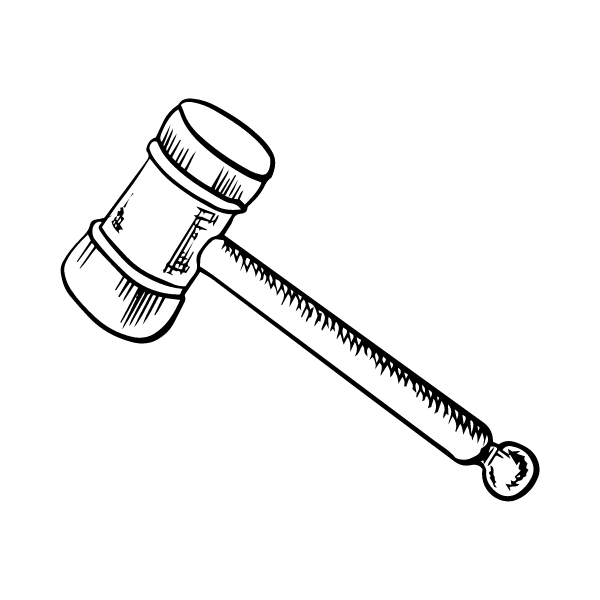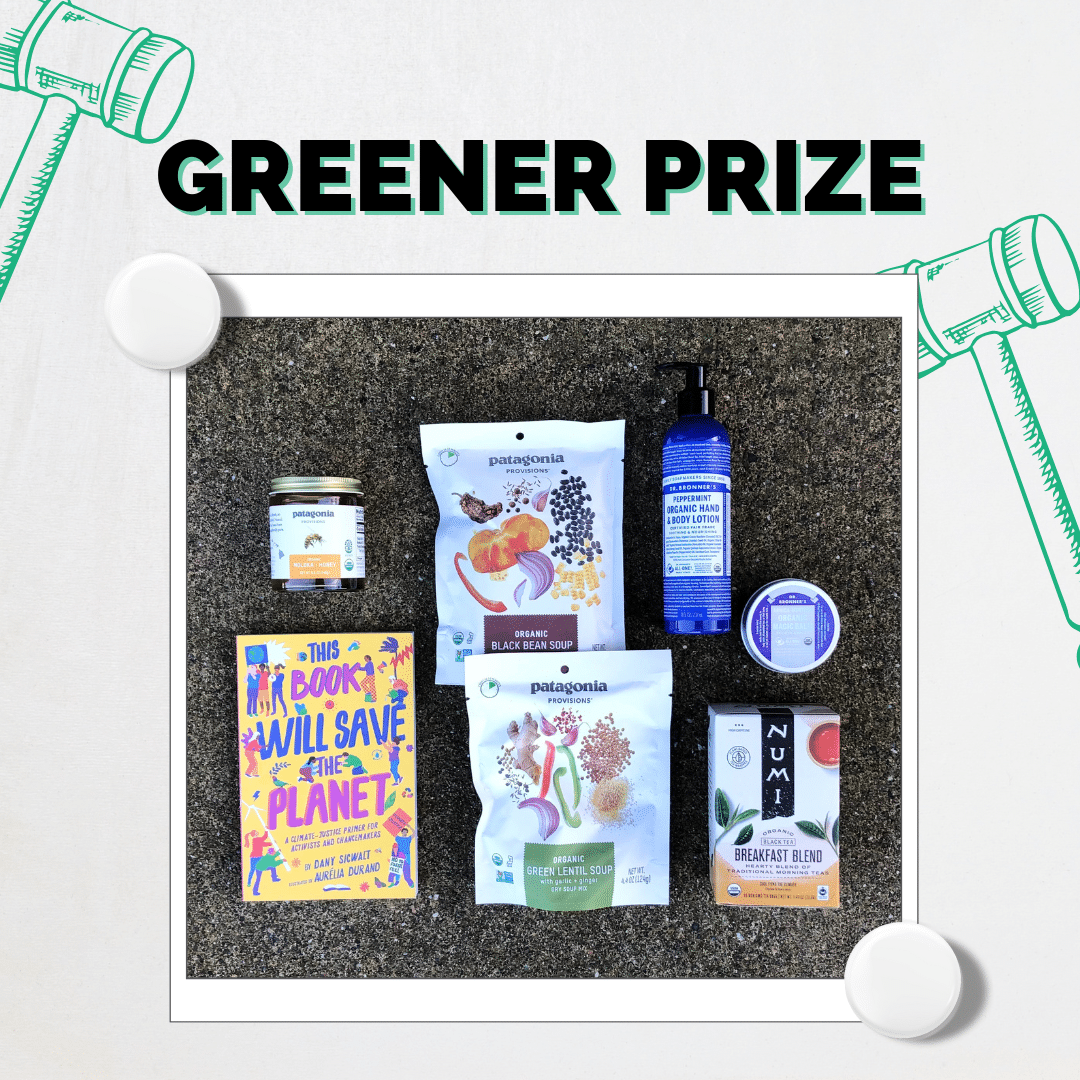
How does climate change impact communities globally?
Climate change is not equally distributed around the world. Communities with the fewest resources to protect themselves against climate change are at the highest risk, despite having contributed the least to the climate crisis.
Environmental activist Leah Thomas coined the term intersectional environmentalism as a way to advocate for protection and justice for all people and the planet. In her words, “It identifies the ways in which injustices targeting frontline communities and the Earth are intertwined.” Through an intersectional lens, we can implement solutions that protect both the environment and humans who live and depend upon it.
How do we act on climate in an equitable way that supports all?
We have to consider the numerous and distinct ways that climate change impacts diverse populations and communities, as well as ensure that we are intentionally including all peoples in activism. Climate change looks different based on geography, race, education, mobility, class, age, and gender, among other varying factors. Therefore, climate change needs wide-ranging definitions, meanings and approaches. Only then can we proactively work to create equitable solutions that benefit people, communities, and ecosystems.

To address the challenges at the intersection of environmental and social justice, we have to understand how the entire world experiences climate change. Western countries emit the highest levels of greenhouse gasses, yet are the least vulnerable to impacts of climate change. People in developing countries will bear the brunt of climate disasters leading to mass geographical displacement. It is estimated that at our current rate, by 2050, nearly 143 million people will be driven from their homes because of climate-related disasters and conflict over scarce natural resources, adding climate refugees to already burdened societies.
“I don’t call it climate change. It’s change for those who are not affected by the crisis. For us, it’s a crisis.”
– Mia Mottley, Prime Minister of Barbados
Climate displacement has become a powerful argument to address climate change. In July 2021, more than one hundred lawyers from New Zealand sued their country’s Climate Change Commission for failing to meet the expectations of the Paris Agreement and violating the Declaration of Human Rights. This strategy gives a strong legal voice to the most vulnerable.
Recently, we’ve seen that legal action can do more than protect the vulnerable. In March of 2020, 16 young people from Montana sued their state on the grounds that the state legislature had acted unconstitutionally by supporting the coal industry. In doing so, these young plaintiffs initiated an intense battle against a deeply conservative state with the largest recoverable coal reserve in the country. The argument rested on the fact that the Montana state constitution explicitly states the need for “a clean and healthful environment,” a provision that this brave youth coalition claimed the government was not upholding by allowing the fossil fuel industry to operate in Montana. In August of this year, after a 3 year legal fight, these young environmentalists and the future of life on Earth left the courtroom victorious. This case is one of the most important climate lawsuits ever decided and sets a very strong legal precedent for environmental protection that other states can follow on the grounds that certain polluting behaviors will impact our future generations for thousands of years to come. More importantly, however, this case proves that you, as a young changemaker, have the power to fight back against a powerful political system that puts profit over people. Rise up and demand your right to a healthy planet — now is your chance.
Climate change impacts all of us, especially younger generations. Yet, climate change is proven to impact people disproportionately along racial lines. Environmental racism leaves Black, Indigenous, and People of Color (BIPOC) communities vulnerable and on the front lines of the climate crisis. A 2021 study funded by the Environmental Protection Agency (EPA) found that exposure to harmful air pollution was “higher for people of color regardless of region or income.” Race was the strongest indicator of air pollution risk in the United States, which is but one of many compounding toxic exposures and related health consequences to which BIPOC populations are subjected to nationwide. Environmental injustice is intricately related to other social issues as well, such as incarceration and graduation rates for BIPOC communities.
The impacts of historical and present day environmental colonialism place Indigenous Peoples at the center of environmental injustice. Indigenous rights to land and tribal sovereignty continue to be ignored by colonization, as the more powerful social group in a given region uses force to remove Indigenous Peoples from their land to gain and often exploit natural resources.
The Maasai people of Tanzania have preserved lands for thousands of years, sustaining themselves by maintaining wildlife and natural resources. In the name of wildlife preservation and the creation of Western-centric national parks and tourist destinations, the Maasai people have been removed from their native lands. By assuming that strategies conceived in the Global North are most effective for conservation, the livelihoods and cultural heritage of time-proven Indigenous practices and cultures continue to be threatened. Recognizing and preserving Indigenous sovereignty and knowledge is fundamental in creating a clean, safe environment for the future, and one that is rooted in justice and harmony with the Earth.
The voices of disabled people are also too often excluded from environmental policy. Exclusively promoting public transportation or reusable straws can be discriminatory, can compound the difficulties these populations face, and keep people out of movements, rather than creating greater inclusivity.
What can we do? Stand boldly, proudly and unapologetically for climate AND social justice in all aspects of our work as environmentalists and human beings, centering the voices of diverse leaders.
You can also support businesses and organizations that do the same, like Captain Planet Foundation, an environmental nonprofit that encourages eco-responsible action and empowers and activates young superheroes worldwide, Patagonia Provisions, which supports smaller sustainable agriculture and fisheries, and Climate Stories Project, which is an organization that shares personal climate stories.
As we witness and experience the far-reaching effects of climate change in real time, we reaffirm our commitment to centering marginalized peoples, building diverse coalitions, boldly speaking out, and using our platforms, privilege, and power for positive change!
To successfully carry the environmental movement forward, we must first recognize how social justice intersects with environmental issues.
Upload a PDF document that includes a screenshot of your social post. Include your name (or team name), username, and school on your upload.
Submission Guidelines
How might you apply what you learned in the GREEN challenge to environmental injustice on your campus or community?
Consider where you live on this planet and the impacts of climate change on the people around you. What is one issue of concern that you would like to learn more about?
A number of governmental agencies have created mapping tools that allow users to track relationships between environmental hazards and human populations, seeing how different demographic areas in specific towns, counties, states, or countries face various health and environmental challenges.
If you’re in the United States, use EJ Screen to find where you live and search the environmental justice indexes. If you are elsewhere, use the EJ Atlas to find an example of environmental injustice in your region.
Craft your call to action as a powerful piece of graphical text. Share widely with local and relevant leaders and groups to raise awareness! If you get a personal response from any leaders (up to 3), you will get an extra 100 points. Simply share a screenshot of the response to info@turninggreen.org by October 15, 2023.
Post it on Instagram, tagging @TurningGreenOrg, @DrBronner, @CaptainPlanetFdn, @Friends_Earth, and any other organizations at the forefront of this work in both the image and caption, as well as #PGC2023.
Upload your responses in a PDF document including a screenshot of your social post. Include your name (or team name), username, and school on your upload to be eligible to win.
Submission Guidelines
Extraordinary humans are using their voices, wisdom, actions, and resources against all odds to propel movements with a massive ripple effect. This is the power of one!
Watch the 2023 Goldman Prize here to be inspired! For 34 years and counting, this annual award has honored six grassroots Environmental Heroes each year, one from each of the world’s six geographic regions, for sustained and significant efforts to protect and enhance the natural environment, often at great personal risk.
Take a look at the 2022 winners of the Brower Youth Awards, which recognize outstanding and emerging youth leaders making great strides in the environmental movement.
Pick one recipient who stands out to you. Picture yourself as a journalist writing a feature story about this incredible changemaker. Draft an article to highlight their accomplishments and why they inspire you.Things to include:
Draft a letter to this hero with three questions.
If you send your hero the questions and they respond with answers, you will get an extra 100 points. Forward their reply to info@turninggreen.org by October 20, 2023, to receive the bonus points.
Upload your responses in a PDF document including a screenshot of your social post. Include your name (or team name), username, and school on your upload to be eligible to win.
Submission Guidelines
Up to 10 Greener and 10 Greenest outstanding submissions will be selected as winners.

Each Greener Winner will receive:

Each Greenest Winner will receive: